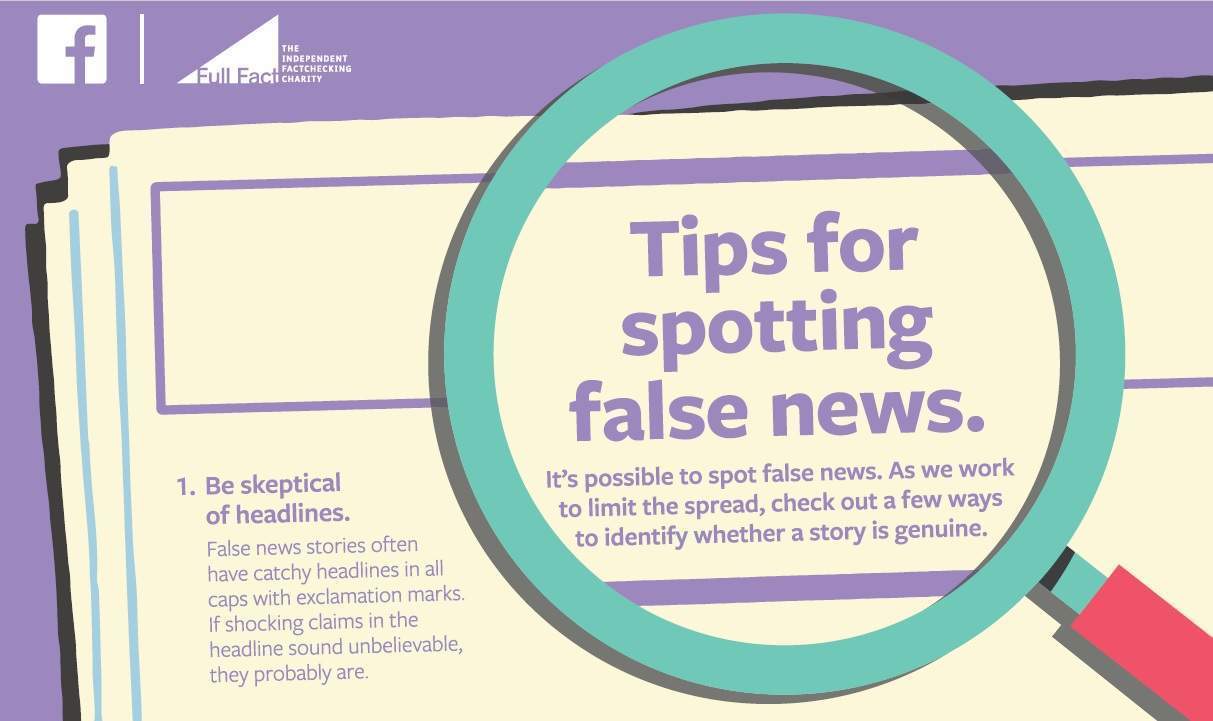
Fake news is still very much by-product of the internet and social media giant Facebook has announced its latest campaign to stop it.
The new initiative from the Mark Zuckerberg-owned company is aimed at stopping misinformation spreading ahead of the UK’s general election which takes place in one month.
Facebook’s director of policy for the UK, Simon Milner, said in a statement:
People want to see accurate information on Facebook and so do we. That is why we are doing everything we can to tackle the problem of false news. We have developed new ways to identify and remove fake accounts that might be spreading false news so that we get to the root of the problem. To help people spot false news we are showing tips to everyone on Facebook on how to identify if something they see is false.
Facebook has rolled out so-called educational adverts across the platform which links to a blog post detailing the ways to spot fake news, such as analysing the URL and spelling mistakes.
As well, it has removed 10,000s of fake accounts in the UK, after making improvements to recognising inauthentic accounts more easily on the service.
How well do you really know your competitors?
Access the most comprehensive Company Profiles on the market, powered by GlobalData. Save hours of research. Gain competitive edge.

Thank you!
Your download email will arrive shortly
Not ready to buy yet? Download a free sample
We are confident about the unique quality of our Company Profiles. However, we want you to make the most beneficial decision for your business, so we offer a free sample that you can download by submitting the below form
By GlobalDataFor instance, if an account is repeatedly posting the same content or has suddenly increased the number of messages it is sending, this alerts Facebook that the account may be false.
Facebook said:
With these changes, we expect we will also reduce the spread of material generated through inauthentic activity, including spam, misinformation, or other deceptive content that is often shared by creators of fake accounts.
Read more: Fool’s gold: Remove the financial incentive of fake news
In addition, Facebook and Google are now part of a fact-checking partnership with two companies: UK-based independent fact-checking organisation Full Fact and US-based non-profit First Draft.
These companies are working with major newsrooms to address rumours and misinformation spreading online during the UK election.
Facebook said more details of this project will be announced soon.
Milner added:
We can’t solve this problem alone so we are supporting third party fact-checkers during the election in their work with news organisations, so they can independently assess facts and stories.
UK prime minister Theresa May surprised everyone when she announced a snap general election in April this year.
YouGov’s latest poll says 47 percent of people are set to vote for the Conservatives in the election, giving the party a 19 point lead against Labour, who are second place with 28 percent of the vote.






